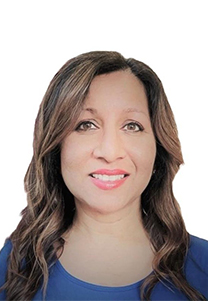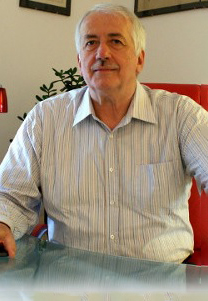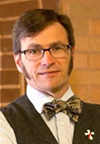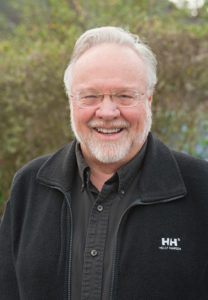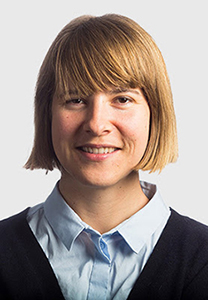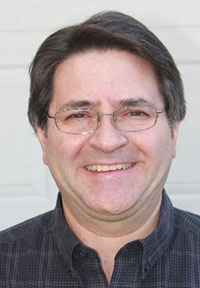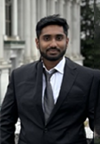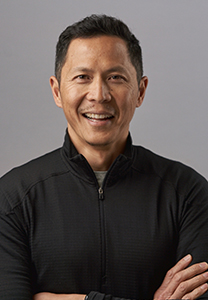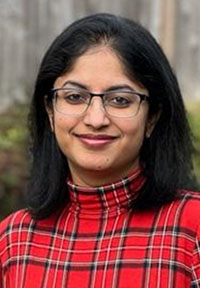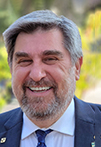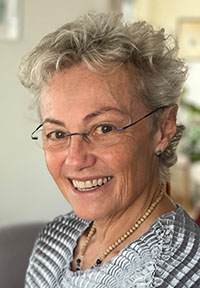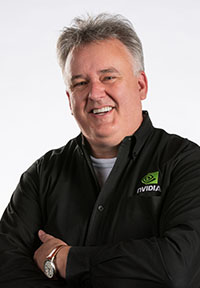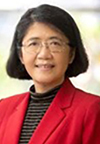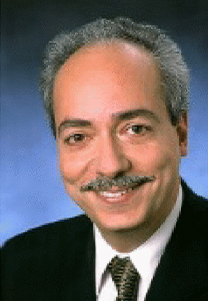The following are some of the speakers that have confirmed their attendance:
- Jyotika Athavale, IEEE Computer Society – 2024 President, Synopsys
- Leonardo Chiariglione, Cedeo.net
- Carrie Dossick, University of Washington
- Amit Dubey, Agilent Technologies
- Stephen Dukes, President & CEO, Imaginary Universes, LLC
- Stephen T. Frezza, Franciscan University of Steubenville
- Tom Furness, University of Washington, Virtual World Society
- Mar Gonzalez-Franco, Google
- Larry Kaplan, Hewlett Packard Enterprise (HPE)
- Tomi Kauppinen, Aalto University
- Gerhard Kress, Siemens
- Bala Thoravi Kumaravel, Microsoft Research, Redmond
- L. Ruby Leung, Pacific Northwest National Laboratory
- Nikolai Leung, Qualcomm
- Anna Mary Matthew, Microsoft
- Dejan Milojicic, Hewlett Packard Labs
- Arnold Pears, KTH Royal Institute of Technology
- Christine Perey, PEREY Research & Consulting, Metaverse Standards Forum
- Neil Trevett, NVIDIA, Metaverse Standards Forum, The Khronos
- May Dongmei Wang, Georgia Institute of Technology and Emory University
- Yervant Zorian, Synopsys
Jyotika Athavale, IEEE Computer Society – 2024 President, Synopsys
Jyotika Athavale is a Director, Engineering Architecture at Synopsys, leading quality, reliability and safety research, pathfinding and architectures for data centers and automotive applications. She also serves as the 2024 President of the IEEE Computer Society, overseeing overall IEEE-CS programs, operations and service to the global computing community.
Jyotika leads and influences several international standardization initiatives in the area of RAS/safety in IEEE, ISO, SAE, JEDEC and OCP. She led the development of the IEEE 2851-2023 standard on Functional Safety Data Format for Interoperability, and now chairs the IEEE P2851.1 standardization initiative on Functional Safety interoperability with reliability. For her leadership in international safety standardization, Jyotika was awarded the 2023 IEEE SA Standards Medallion. And for her leadership in service, she was awarded the IEEE Computer Society Golden Core Award in 2022.
Jyotika has authored patents and many technical publications in various international conferences and journals. She has also pioneered & chaired international workshops and conferences in the field of dependable technologies.red patents and many technical publications in various international conferences and journals. She has pioneered & chaired international workshops and conferences in the field of dependable technologies.
Leonardo Chiariglione, Cedeo.net
Leonardo obtained his MS degree from the Polytechnic of Turin and his Ph.D. degree from the University of Tokyo.
He has been at the forefront of a number of initiatives that have helped shape media technology and business as we know them today, starting from MPEG which he founded in 1988 and chaired for 32 years until he was ousted in June 2020 by a coalition of obscure forces.
From March 1971 until July 2003, Leonardo he worked at CSELT, the corporate research center of the Telecom Italia group and is the CEO of CEDEO.net since its establishment in January 2004. Leonardo is the recipient of several awards: among these the IBC John Tucker award, the IEEE Masaru Ibuka Consumer Electronics award and the Kilby Foundation award.
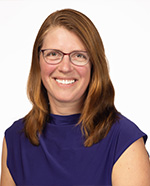 Carrie Dossick, University of Washington
Carrie Dossick, University of Washington
Carrie Sturts Dossick, Ph.D., P.E. is a John E. Schaufelberger Endowed Professor in Construction Management and the Associate Dean of Research in the College of Built Environments, University of Washington. Dr. Dossick also holds an adjunct professor appointment in the Department of Civil and Environmental Engineering. Dr. Dossick directs the Communication, Technology, and Organizational Practices lab in the Center for Education and Research in Construction (CERC). Dr. Dossick has over two decades of research and teaching experience focused on emerging collaboration methods and technologies such as collaborative delivery, Building Information Management (BIM), Virtual Reality, and Digital Twins. She is an active member of the National Institute of Building Sciences’ (NIBS) Digital Technology Council and is a member of the National BIM Standard-US Planning Committee. Recent research and teaching projects include a Pankow-funded project called the Building Owner Assessment Tool (BOAT), an NSF-funded project on Cybersecurity for Large Institutional Owners, as well as a pilot project to develop a Digital Twin pilot for the I-90 Bridge, an industry-funded MEP VDC Services study, and the development of the Project BIM Requirements Module for the National BIM Standard U.S. with NIBS. She has received funding from the National Science Foundation, Charles Pankow Foundation, U.S. Army, U.S. Department of Education, New Horizons Foundation, John R. Gentille Foundation, ELECTRI INTERNATIONAL, National Institute of Building Sciences, General Services Administration, Mechanical Contractors Association of Western Washington, Sound Transit, Skanska USA Building, Mortenson Company, University of Washington Royalty Research Fund, UW Campus Sustainability Fund, and UW Facilities.
 Amit Dubey, Agilent Technologies
Amit Dubey, Agilent Technologies
Amit Dubey is a seasoned technology leader with over two decades of experience in the software, data science industry. As the Chief Technology Officer at Dataflux.ai and Data science manager at Agilent technologies, he has demonstrated expertise in digital transformation, cloud computing, and emerging data science technologies. Amit’s career spans roles at prestigious organizations like Agilent Technologies, Boeing, Fiserv, Accenture, Egon Zehnder, Airbus GMBH, where he honed his skills in data Science, solution architecture and technology consulting.
Beyond his technical prowess, Amit is passionate about mentoring and developing talent, actively participating in various technology communities. He is a frequent speaker at industry events and has contributed to publications on digital innovation. In his spare time, Amit enjoys outdoor activities and is an avid photographer. His unique blend of technical depth, leadership experience, and diverse interests makes him well-suited to engage with the IEEE workshop audience, offering insights that bridge the gap between cutting-edge technology and practical business applications.
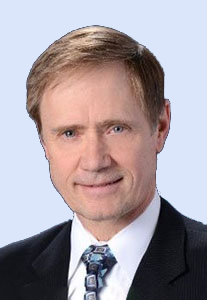 Stephen Dukes, President & CEO, Imaginary Universes, LLC
Stephen Dukes, President & CEO, Imaginary Universes, LLC
Stephen Dukes (IEEE Life Fellow) is an executive and visionary with 47 years of business and technical leadership. Dukes serves as Chair of Origin Wireless Advisory Board. Dukes held executive positions Dreamerse, Aumne, CableLabs, TCI, MediaOne, 3DO and management/technical roles at Boeing BCS and GTE. Dukes was inducted into the IEEE Technical Activities Hall of Honor in 2024. Mr. Dukes is a member of the American College of Corporate Directors and holds an Executive Masters Professional Director Certification, conferred by the American College of Corporate Directors. Dukes holds a B.S. Mathematics, University of Washington.
Stephen T. Frezza, Franciscan University of Steubenville, Steubenville OH, USA
Deacon Steve Frezza is a Professor of Software Engineering and director of the Software Engineering program at Franciscan University of Steubenville. His research interests include philosophy of engineering, affective-domain assessment, competency modeling and assessment, software engineering education, and the relationship between engineering and theology. At Franciscan University, he helps lead the effort to launch undergraduate mechanical and software engineering programs uniquely designed to support professional virtue formation. Dr. Frezza is a senior member of the IEEE Computer Society (IEEE-CS) and a professional member and volunteer of the American Society for Engineering Education (ASEE).
Tom Furness, University of Washington, Virtual World Society
Tom Furness is an amalgam of Professor, Inventor and Entrepreneur in a professional career that spans 58 years. In addition to his contributions in photonics, electro-optics, human interface technology, he is an original pioneer of virtual and augmented reality technology and widely known as the ‘grandfather’ of virtual reality.
Tom is Professor Emeritus of Industrial and Systems Engineering at the University of Washington (UW), Seattle, Washington, USA. He is the founder of the family of Human Interface Technology Laboratories at the University of Washington, Christchurch, New Zealand and Tasmania, Australia. Tom is a Fellow in the IEEE and the founder and chairman of the Virtual World Society, a non-profit for extending virtual reality as a learning system for families and other humanitarian applications. He serves on several advisory boards and runs his own company: RATLab LLC (rat= rockin’ and thinkin’) where he experiments with ‘far out’ technologies and concepts.
Mar Gonzalez-Frano,Google
Dr. Mar Gonzalez-Franco is a research manager at Google AR & VR where she works on creating a new generation of Immersive Tech. She leads the Blended Interactions Research and Devices team (BIRD), in their work they explore multi-device and multi-modal futures enabled by ML and AI. From foundational work to full products. Before that she was a principal researcher at Microsoft Research where she open sourced some of the most used avatar libraries like the Microsoft Rocketbox. Her work transferred into the release of Avatars in Teams that was awarded Times invention of the year , and it is to date the largest deployment of avatars in any productivity platform, available to the 270 million users of MS Teams. In 2022 she was awarded the IEEE VGTC Virtual Reality new significant researcher award.
Larry Kaplan, Hewlett Packard Enterprise (HPE)
Mr. Larry Kaplan is a Senior Distinguished Technologist at HPE who has been working on HPC systems for over 30 years. He is currently the Chief Software Architect for HPC and is working on the design and implementation of the software stack for the current and next generations of the HPE Cray Supercomputer product line. Special focus areas for Mr. Kaplan include federated workflows, advanced system and power management, open and modular software ecosystems, and advanced network software stacks.
Larry also played a significant role in the design of the Cray XC, XE, XT, XMT, and Tera MTA supercomputers. Mr. Kaplan has a Master’s degree in Computer Architecture from the Courant Institute at NYU and a Bachelor’s degree in Computer Science modified with Electrical Engineering from Dartmouth College and holds over a dozen U.S. patents.
 Tom Kauppinen, Aalto University
Tom Kauppinen, Aalto University
Tomi Kauppinen is Head of Aalto Online Learning—Online Hybrid Lab at Aalto University, Finland. His academic journey spans cognitive systems, artificial intelligence (AI), visual communication, geoinformatics, and online learning, with a global presence in over 30 countries through alliances, projects and keynotes. Tomi’s passion lies in the intersection of exploration, research, design, philosophy and education, all aimed at deepening understanding of the world and developing essential skills and mindsets. Tomi is a strong advocate for leveraging storytelling, metaverse experiences including immersive augmented reality, information visualizations, and human-to-human interactions to achieve these goals, while maintaining a critical perspective on AI’s and more generally tech’s role in society. Tomi hosts the Cloud Reachers podcast, exploring cutting-edge with outstanding guests, and is a published author. His works include the self-published debut novel Human—a speculative fiction set in a future world—and the co-edited volume Design Education Across Disciplines, published by Palgrave Macmillan.
Gerhard Kress is responsible for portfolio and digital business in Siemens Xcelerator, driving the digital transformation of Siemens globally and building the digital business platform enabling the industrial metaverse. Prior he was responsible over 8 years for Digital Services for Rail, developing and bringing the “Railigent” platform to market and building up data analytics enabled customer offerings.
Before that he held roles with regards to digitalization in Siemens Corporate Technology and in Corporate Strategy. His first role in Siemens was in IT solutions and services, managing systems and technologies for the global service desks and major IT outsourcing projects.
Gerhard Kress started his career in McKinsey & Company. He holds a German diploma in Theoretical Physics and a Master of Arts in International Relations and European Studies. During his studies, Gerhard Kress was President and Member of the European board of the student NGO “AEGEE- Europe.”
Bala Thoravi Kumaravel, Microsoft Research, Redmond
Bala Throravi Kumaravel is a Senior Researcher at Microsoft Research, Redmond at the EPIC team(opens in new tab). He works on leveraging Generative AI models (LLMs and Diffusion models) to enhance user productivity and collaboration in business-critical applications. He has a particular interest in customizing, fine-tuning, and aligning generative AI models for specific end-user applications.
Before joining Microsoft, Bala completed his Ph.D. at the University of California, Berkeley where he was advised by Prof. Björn Hartmann(opens in new tab). His research at Berkeley was concentrated in the domains of Virtual and Augmented Reality, exploring applications in diverse activities, from AR/VR-assisted robotics interactions to enhancing learning experiences. Before that, he completed his Bachelors at Indian Institute of Technology, Madras where his Bachelors’ thesis won the best interdisciplinary thesis project amongst all engineering departments and the best thesis in the department.
More details his publications and projects can be found at www.tkbala.com
L. Ruby Leung, Pacific Northwest National Laboratory
L. Ruby Leung is a Battelle Fellow at Pacific Northwest National Laboratory. Her research broadly cuts across multiple areas in modeling and analysis of climate, water cycle, and extreme events. Ruby is the Chief Scientist of the U.S. Department of Energy’s Energy Exascale Earth System Model (E3SM), a major effort involving over a hundred earth and computational scientists and applied mathematicians to develop state-of-the-art capabilities for modeling human-Earth system processes on DOE’s next generation high performance computers.
Ruby is an elected member of the National Academy of Engineering and Washington State Academy of Sciences. She is also a fellow of the American Meteorological Society (AMS), American Association for the Advancement of Science (AAAS), and American Geophysical Union (AGU). She is the recipient of the AGU Global Environmental Change Bert Bolin Award and Lecture in 2019, the AGU Atmospheric Science Jacob Bjerknes Lecture in 2020, and the AMS Hydrologic Sciences Medal in 2022. She was awarded the DOE Distinguished Scientist Fellow in 2021. She received a BS in Physics and Statistics from Chinese University of Hong Kong and an MS and PhD in Atmospheric Sciences from Texas A&M University. Ruby has published over 550 papers in peer-reviewed journals.
Nikolai Leung, Qualcomm
Nikolai has been developing cellular and multimedia standards since 1996, where he started with the development of the TIA TR45.5 analog fax and data standards, followed by the multi-channel radio link protocol for IS-95B. He then continued to work on voice codecs, TTY, data protocols, and video telephony for cdma2000 as part of the 3GPP2 standards development organization. In 2007, he transitioned to 3GPP where he led the Qualcomm team in the development of eCall, multimedia telephony, dynamic adaptive HTTP streaming, and the Enhance Voice Services (EVS) codec standards. He also served in various chair and vice-chair positions in both 3GPP and 3GPP2.
Nikolai currently leads Qualcomm’s multimedia standards and industry efforts which cover the areas of systems, protocols, XR, compression, graphics, broadcast, application interfaces and ecosystems. Some of the key organizations that the teams he leads participate in are 3GPP, MPEG, Khronos, the Metaverse Standards Forum, 5G-MAG, IEEE, DVB, ATSC, and DASH-IF.
Beyond his standardization role, Nikolai focuses his time on tackling the climate crisis and supporting efforts to encourage innovation and invention.
Anna Mary Matthew, Microsoft
Anna Mary leads the AI Systems Engineering team at Microsoft. Her team works with the Industry to enable cutting edge hardware to enable the next wave of Generative AI and other training models.
She has been with Microsoft over the last 6 years and was the lead Systems Engineer for the A100 platform on which Chat GPT was launched. She has patents and publications to her credit.
Prior to Microsoft she was leading the team working on Intel persistent memory(Intel Optane memory ) that was launched for the server segment
Dejan Milojicic, Hewlett Packard Labs
Dejan Milojcic is an HPE Fellow and VP at Hewlett Packard Labs, Palo Alto, CA [1998-present]. Previously, he worked at the OSF Research Institute, Cambridge, MA [1994-1998] and Institute “Mihajlo Pupin”, Belgrade, Serbia [1983-1991]. He received his Ph.D. from the University of Kaiserslautern, Germany (1993); and his MSc/BSc from Belgrade University, Serbia (1983/86). His research interests include systems software, distributed computing, systems management, and HPC.
Dejan has over 250 papers, 2 books, and 86 granted patents. Dejan is an IEEE Fellow (2010), ACM Distinguished Engineer (2008), and HKN and USENIX member. Dejan was on 9 Ph.D. thesis committees, and he mentored over 90 interns. Dejan was president of the IEEE Computer Society (2014), an IEEE presidential candidate in 2019, editor-in-chief of IEEE Computing Now and Distributed Systems Online and he has served on many editorial boards and TPCs. Dejan led large industry-government-university collaborations, such as Open Cirrus (2007-2011) and New Operating System (2014-2017).
Arnold Pears, KTH Royal Institute of Technology, Sweden and President Elect IEEE Education Society
Arnold Pears is Professor of Engineering Education and Chair of the Department of Learning in Engineering Technology at KTH Royal Institute of Technology, Stockholm, Sweden. Between 1991 and 2017 he worked as Associate Professor and Professor of Computer Science at Uppsala University, Sweden, where he was also Deputy Head of Department and Head of Education. He received his PhD from La Trobe University, Melbourne, Australia in 1993 and his BSc(Hons 1st class) 1987. His research interests include computer architecture design for parallel computing, computer communications and networking, computing education research, engineering education, and technology and AI in education.
Arnold has published widely with over publications in IEEE and ACM conferences and journals. He is an IEEE Senior Member, ACM and ASEE member. He has served as international evaluator of research grants in Engineering and Technology education for research councils in Norway, South Africa and Netherlands, as well as serving on over 30 PhD committees as opponent or member of the thesis committee. He has served the IEEE as a Computer Society Board of Governors Member 2012-2014, and as Education Society VP Publications 2019-2022, President Elect 2023-2024 and will serve as President 2025-2026. Since 2022 Arnold has been popular as a public speaker at conferences and educational events related to AI and Education and the Metaverse. Some recordings of his past presentations can be found linked from his professional web page (www.kth.se/profile/pears).
Christine Perey, PEREY Research & Consulting, Metaverse Standards Forum
Christine Perey is an analyst and active leader of new technology initiatives. Her company provides insights, services and programs for executives building and acquiring AR-enabling technologies as well as to the largest enterprise Augmented Reality (AR) platform customers. She is the founder of the AR for Enterprise Alliance (AREA).
Christine is a world-renown advocate for open and interoperable AR and serves on numerous boards, is an officer of the Metaverse Standards Forum and the Open AR Cloud association, and leads several standards working groups.
Neil Trevett, NVIDIA, Metaverse Standards Forum, The Khronos
Neil Trevett is VP Developer Ecosystems at NVIDIA, where he helps developers harness GPU acceleration. Neil has been the elected President of the Khronos Group for over twenty years, where he helped initiate many open standards that are widely adopted throughout the industry including glTF, OpenXR, OpenGL ES, Vulkan, and WebGL.
Most recently, Neil initiated and is now President of the Metaverse Standards Forum with over 2,600 member organizations.
May Dongmei Wang, Georgia Institute of Technology and Emory University
Dr. Wang is a Wallace H. Coulter Distinguished Faculty Fellow and a full professor of BME and ECE at Georgia Institute of Technology (Georgia Tech) and Emory University. She received BEng from Tsinghua University China, and MS/PhD degrees from Georgia Tech. Her research is in Biomedical Big Data with AI-Driven Intelligent Reality (IR) for predictive, personalized, and precision health (pHealth). Dr. Wang delivered over 330 invited and keynote lectures, published over 320 referred articles in journals and conference proceedings with over 17,000 Google Scholar citations, and received Emory University MilliPub Award for a high-impact paper cited over 1,000 times. She also received Georgia Tech Outstanding Faculty Mentor award. Dr. Wang is Director of Biomedical Big Data Initiative, Georgia Distinguished Cancer Scholar, Petit Institute Faculty Fellow, Kavli Fellow, Fellow of AIMBE, Fellow of IAMBE, Fellow of IEEE, ELATES Fellow, and Board of Directors in American Board of AI in Medicine. Dr. Wang is Senior Editor of IEEE Journal of Biomedical and Health Informatics and Associate Editor of IEEE Transactions of BME, and serves NIH CDMA, NSF Smart Connect Health, and Brain Canada panels. She is part of Georgia Tech Provost’s Emerging Leaders and Leading Women, IEEE Future Directions Committee, and IAMBE Executive Committee. Over the years, Dr. Wang was Carol Ann and David Flanagan Distinguished Faculty Fellow, GT Biomedical Informatics Co-Director in NIH-ACTSI, and Bioinformatics-Biocomputing Core Director in NCI U54 Center of Cancer Nanotechnology Excellence. In addition, she was IEEE EMBS VP Finance, AIMBE Nomination Committee Chair, IEEE EMBS Distinguished Lecturer, and an Emerging Area Editor for Proceedings of National Academy of Sciences (PNAS). She has been supported by NIH, NSF, CDC, Georgia Research Alliance, Georgia Cancer Coalition, Shriners’ Hospitals for Children, Children’s Health Care of Atlanta, Enduring Heart Foundation, Coulter Foundation, Imlay Foundation, Microsoft Research, HP, UCB, and Amazon.
Yervant Zorian, Synopsys
Dr. Zorian is a Chief Architect and Fellow at Synopsys, as well as President of Synopsys Armenia. Formerly, he was Vice President and Chief Scientist of Virage Logic, Chief Technologist at LogicVision, and a Distinguished Member of Technical Staff AT&T Bell Laboratories.
He is currently the President of IEEE Test Technology Technical Council (TTTC), the founder and chair of the IEEE 1500 Standardization Working Group, the Editor-in-Chief Emeritus of the IEEE Design and Test of Computers and an Adjunct Professor at University of British Columbia. He served on the Board of Governors of Computer Society and CEDA, was the Vice President of IEEE Computer Society, and the General Chair of the 50th Design Automation Conference (DAC) and several other symposia and workshops.
Dr. Zorian holds 36 US patents, has authored four books, published over 350 refereed papers and received numerous best paper awards. A Fellow of the IEEE since 1999, Dr. Zorian was the 2005 recipient of the prestigious Industrial Pioneer Award for his contribution to BIST, and the 2006 recipient of the IEEE Hans Karlsson Award for diplomacy. He received the IEEE Distinguished Services Award for leading the TTTC, the IEEE Meritorious Award for outstanding contributions to EDA, and in 2014, the Republic of Armenia’s National Medal of Science.
He received an MS degree in Computer Engineering from University of Southern California, a PhD in Electrical Engineering from McGill University, and an MBA from Wharton School of Business, University of Pennsylvania.

